Meet Uda
Uda Deshapriya is a feminist artist based in Sri Lanka. Uda has been part of grassroot level women’s rights movements and sexual and reproductive health movements since the age of 18. Uda is also an attorney-at-law with experience in working on cases of sexual and gender based violence.
“Art provides an avenue for creative expression of the rage and heartbreak one encounters as we develop an awareness of the profound discrimination people experience by being women and being queer. Alot of my art dwells on the themes of challanging patriarchy, right to bodily autonomy, and queerness. Welcome to this space where I share with you some of my recent artwork”– Uda

Meet Uda
Uda Deshapriya is a feminist artist based in Sri Lanka. Uda has been part of grassroot level women’s rights movements and sexual and reproductive health movements since the age of 18. Uda is also an attorney-at-law with experience in working on cases of sexual and gender based violence.
“Art provides an avenue for creative expression of the rage and heartbreak one encounters as we develop an awareness of the profound discrimination people experience by being women and being queer. Alot of my art dwells on the themes of challanging patriarchy, right to bodily autonomy, and queerness. Welcome to this space where I share with you some of my recent artwork”– Uda
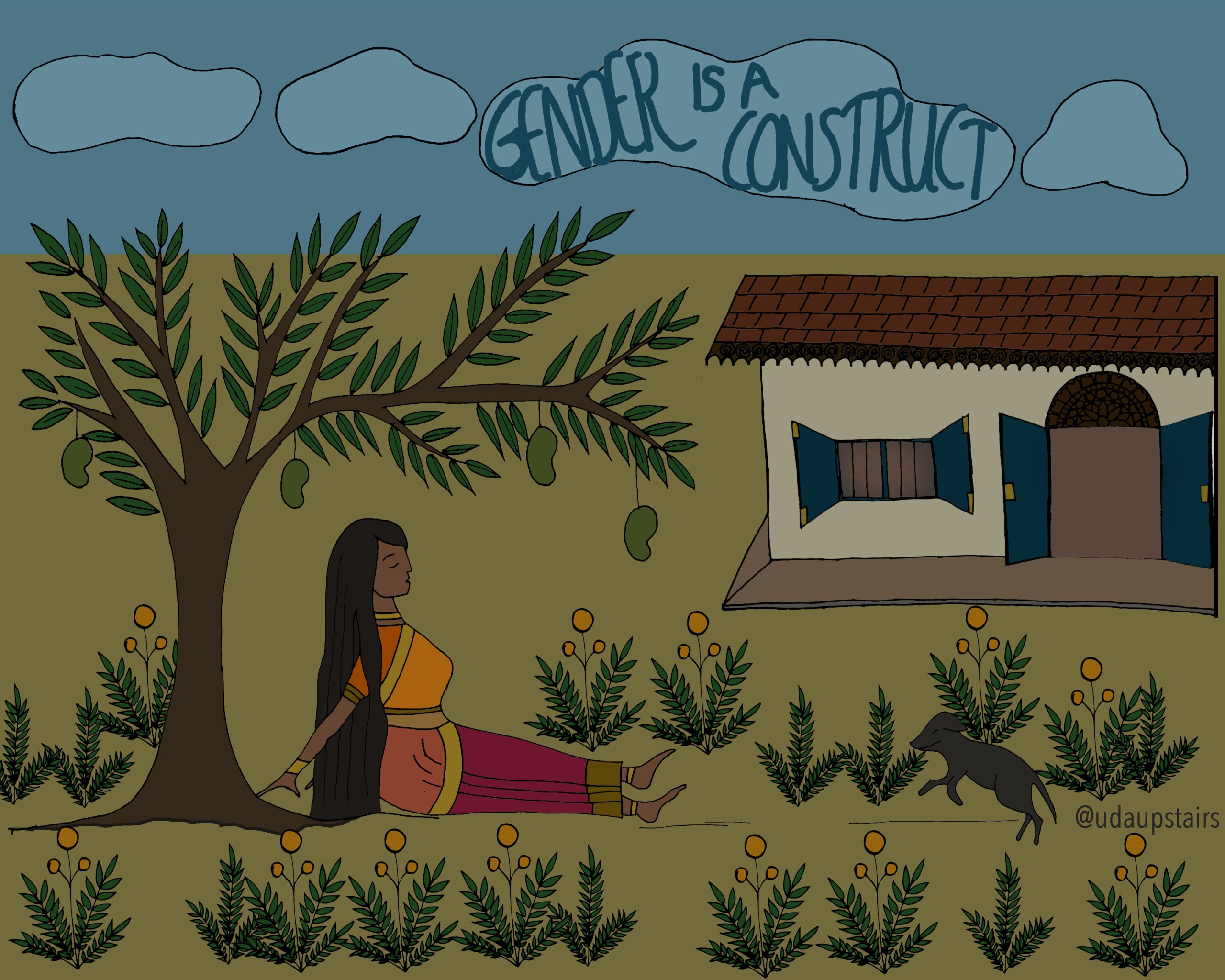
Gender is a construct
Gender norms are socially constructed expectations based on one’s gender and often limit people’s full potential. Gender inequality disproportiontey affects women and girls restricting their acess to education, employment, and health care, but also preventing their full empression of their authetic selves. In the Northern part of Sri Lanka affected by 30 years of civil war, women still struggle to naviate through rigid gender norms particularly in the sphere of marriage and family relations.
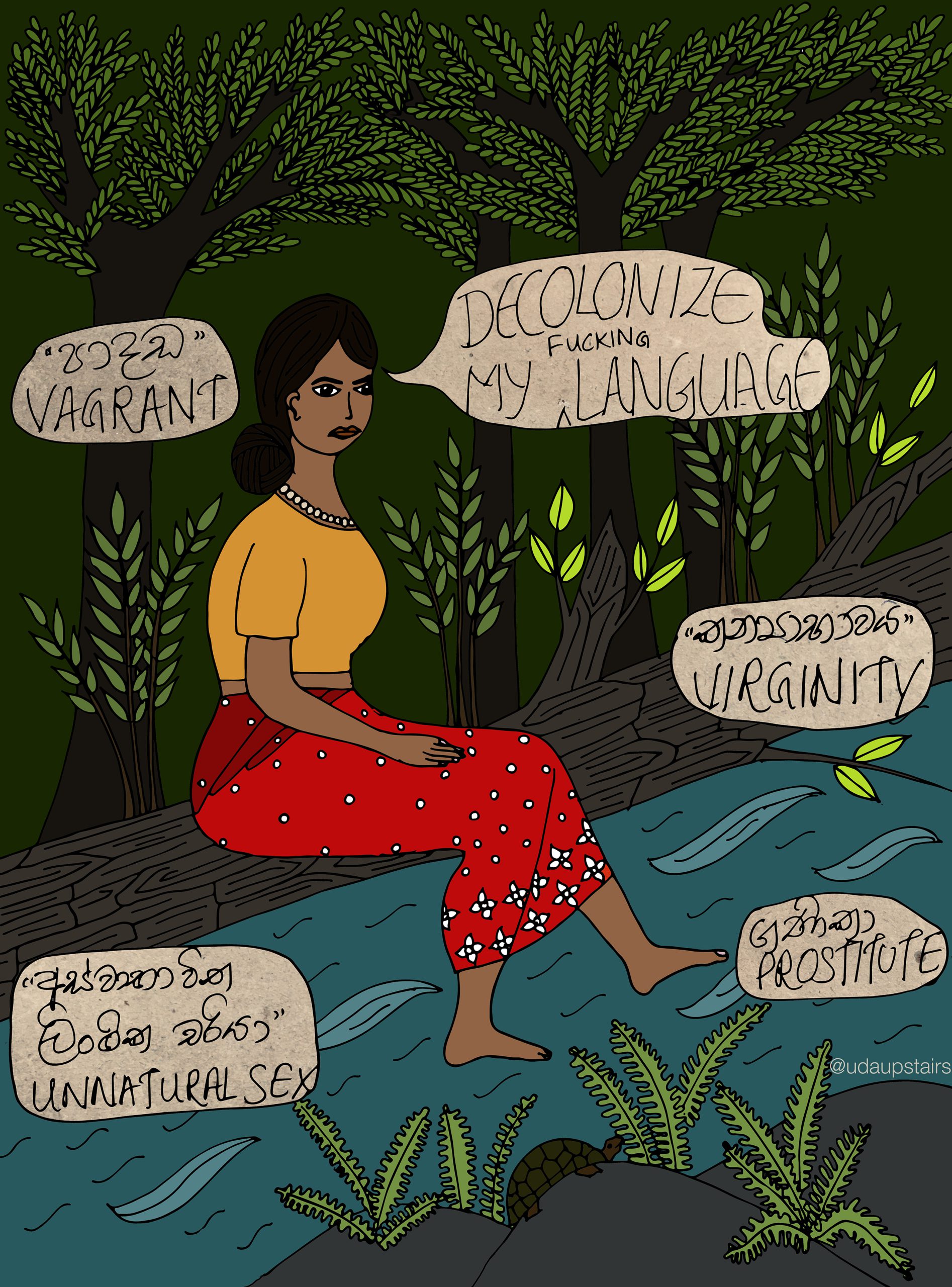
Decolonise my language
Sri Lanka was under colonial rule for 443 years under Portugues, Dutch and British rule during which colonial rulers, particularly the British, brough laws and regulation as part of supposed gentrification process. In 1883, the British outlawed same-sex sexual relations (referring to it as ‘unnatural sex’ through the Penal Code which still exist today. This law remains valid to date. Through the Vagrancy Ordinance which sought to clean the city streets of native people, soliciting for sex was outlawed and this legislation is still used to arrest, harass, and intimidate sex workers today. ‘There’s nothing so common as whoredome…’, wrote Robert Knox condesendingly refering to the Sinhalese culture that existed in Ceylon in the 1670s. Through introducting laws and language to restrict sexual relations, the British imposed victorian ideology on the psyche of the people and transformed the liberal social norms that existed around sex and sexuality in Ceylon. 75 years after Independence, Sri Lanka still struggles to look at these colonial norms critically through a rights based lens.
Let go. Let heal. Let bloom.
1 in 3 women experience sexual and gender based violence in Sri Lanka. Often resorting to legal processes for redress or using media to amplify the voice of survivors fail to bring the inner healing required to move from trauma of violence. Healing requires inner spiritual reflection and an act of ‘letting go’. It is only through this that one can begin to heal and create the space to ‘bloom’ through the exploration of one’s body and sexuality through a new lens of autonomy and pleasure.
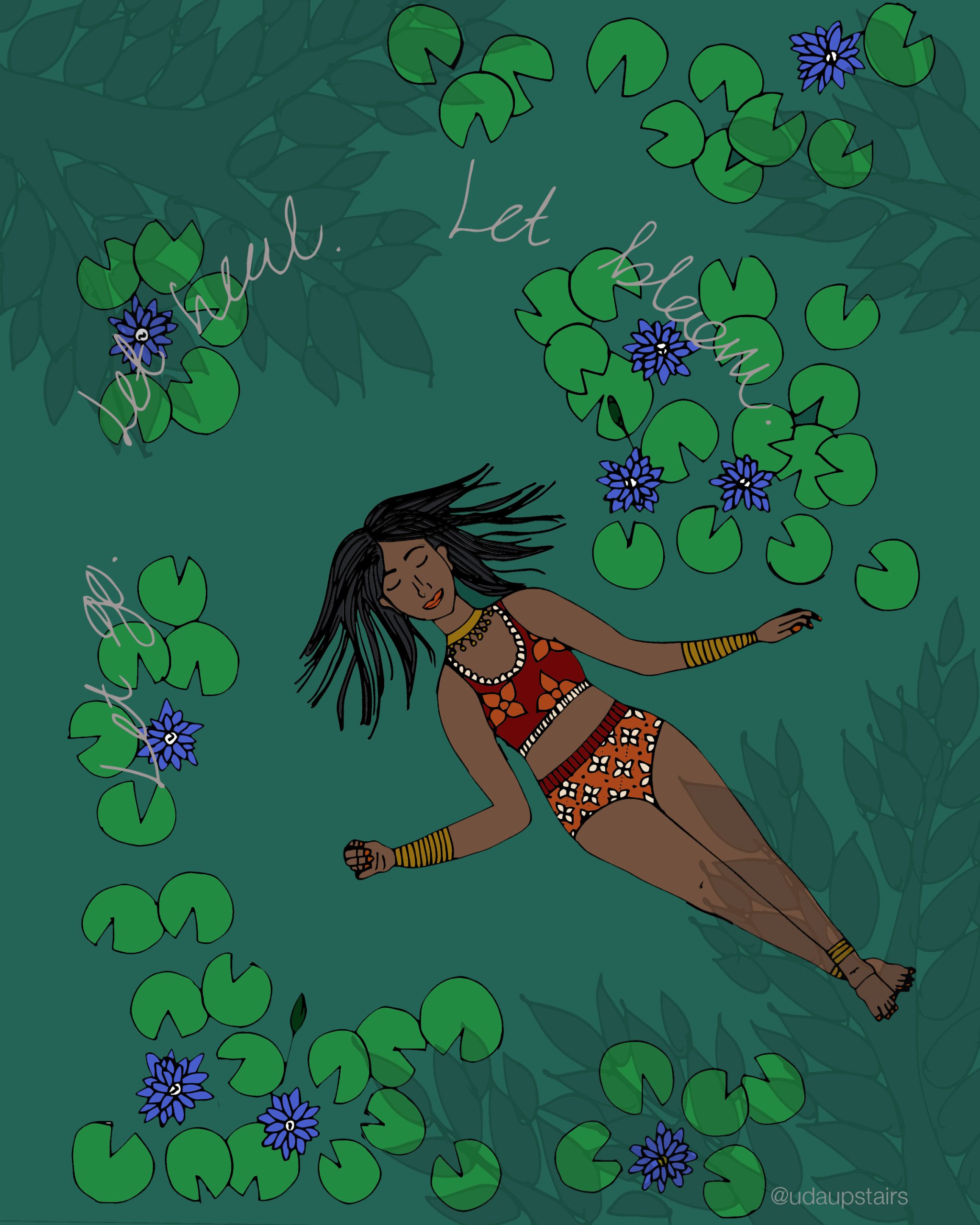

Let go. Let heal. Let bloom.
1 in 3 women experience sexual and gender based violence in Sri Lanka. Often resorting to legal processes for redress or using media to amplify the voice of survivors fail to bring the inner healing required to move from trauma of violence. Healing requires inner spiritual reflection and an act of ‘letting go’. It is only through this that one can begin to heal and create the space to ‘bloom’ through the exploration of one’s body and sexuality through a new lens of autonomy and pleasure.
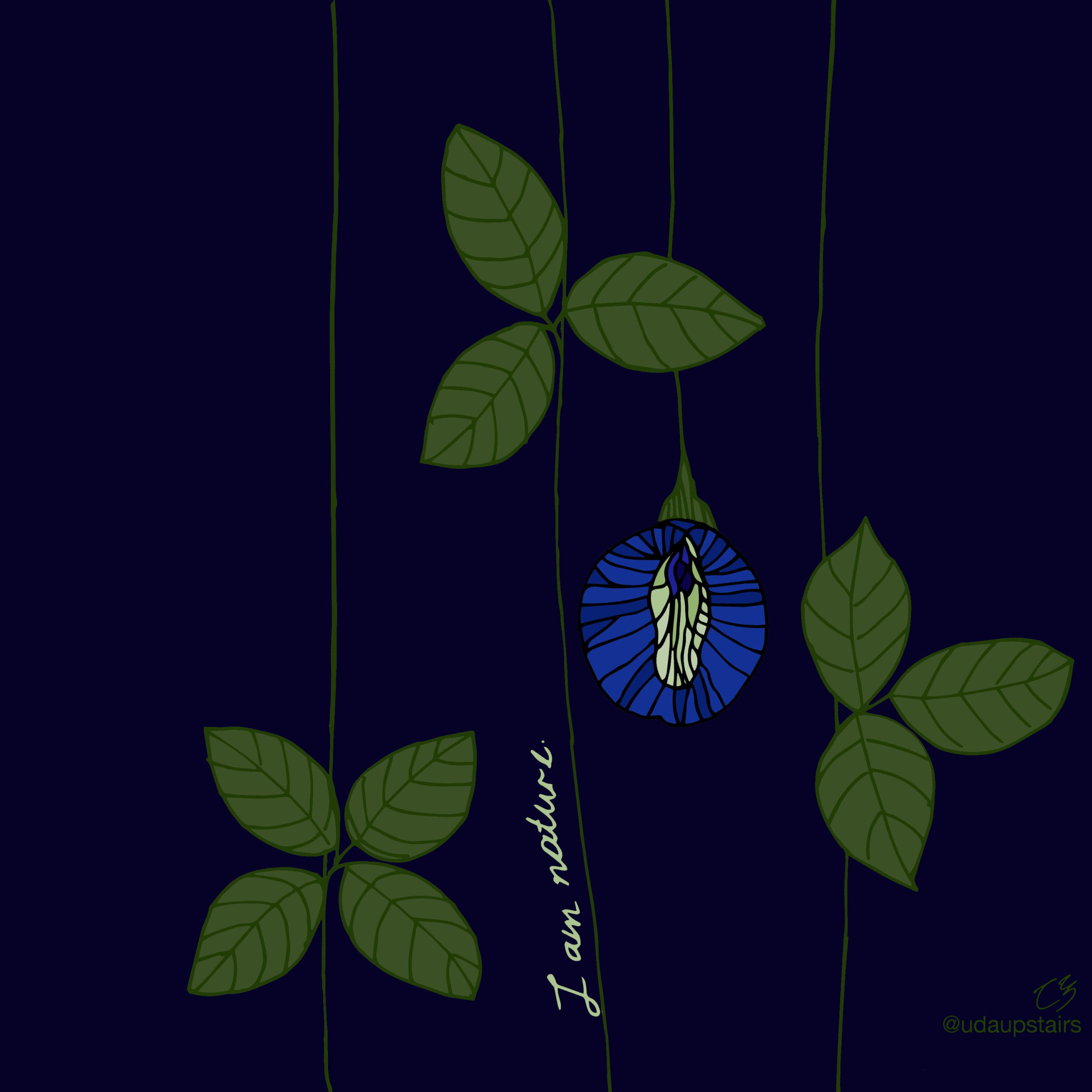
I am nature.
A quick reminder that our bodies are as beautiful as the nature that surrounds us. The beautiful tropical flower clitoria ternatea is named after the clitoris, and resembles external genitalia of the female– which is often considered taboo.
Power comes from within.
A giant vulva-flower on the crown chakra to remind us that brain is the primary sexual organ.
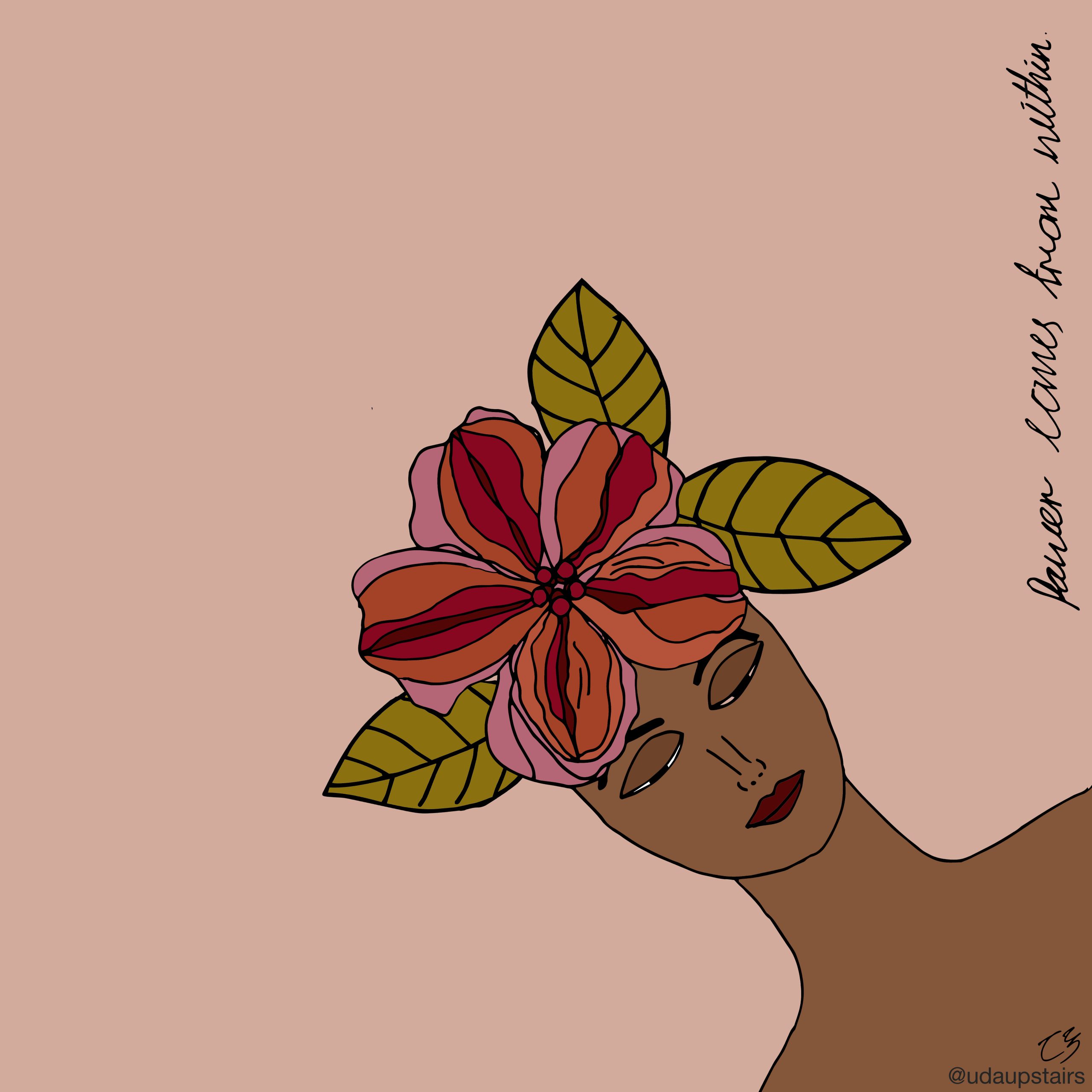

I am nature.
A quick reminder that our bodies are as beautiful as the nature that surrounds us. The beautiful tropical flower clitoria ternatea is named after the clitoris, and resembles external genitalia of the female– which is often considered taboo.

Power comes from within.
A giant vulva-flower on the crown chakra to remind us that brain is the primary sexual organ.
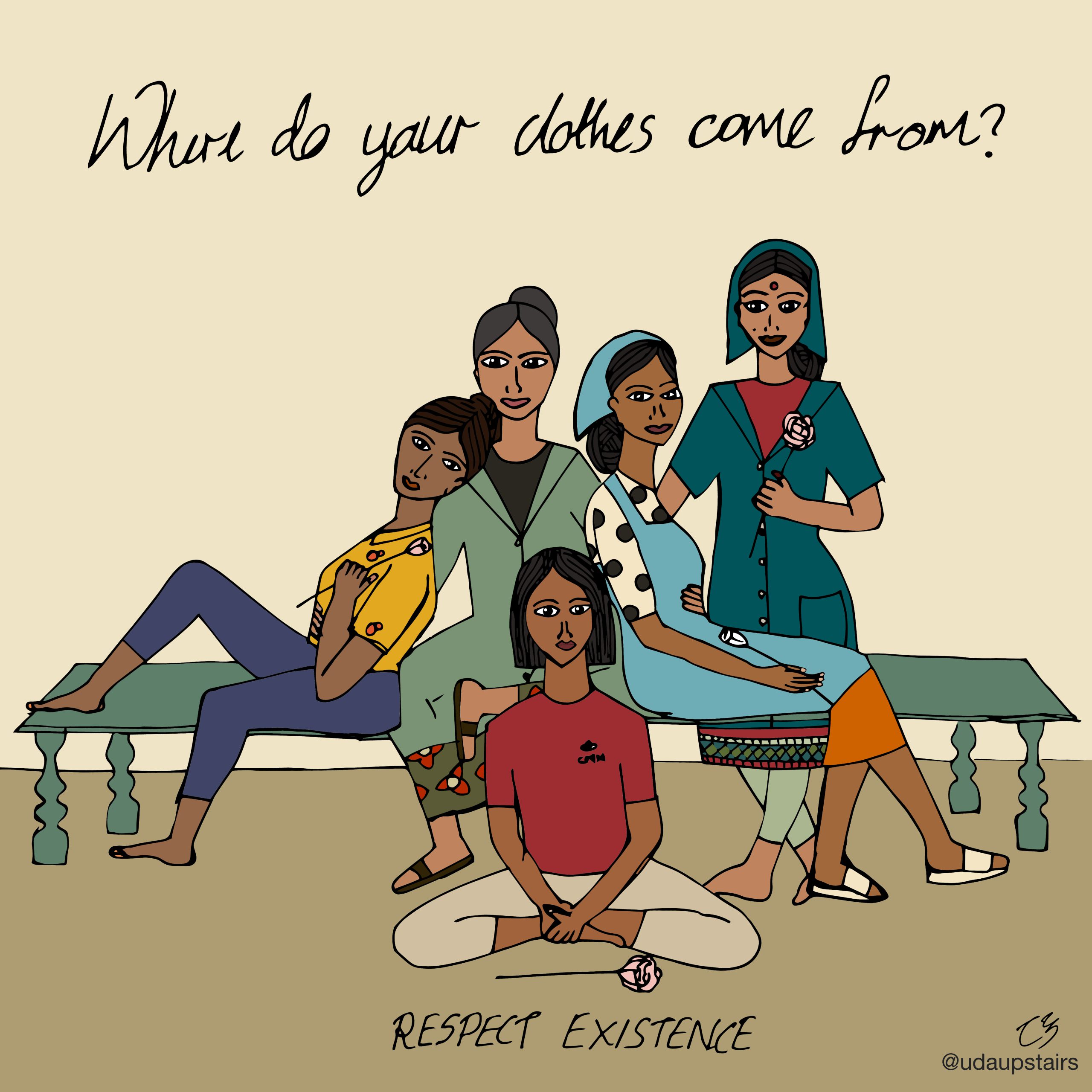
Where do your clothes come from?
Thousands of women work in export processing zones in Sri Lanka, primarily in textile factories. Despite poor working conditions, inadequate wages, long hours, work under the constant gaze of the rigid management, prevalent gender based discrimination, and less-than decent living quarters, women from different parts of the country come together to find sisterhood and comradery. Textile factories in the export processing zone became particularly vulnerable to COVID-19 and textile workers faced stigma, discrimination, and exclusion in public spaces and health settings. Before ’blaming’ the textile workers for the spread of COVID-19, perhaps it is good to recall who made your clothes.
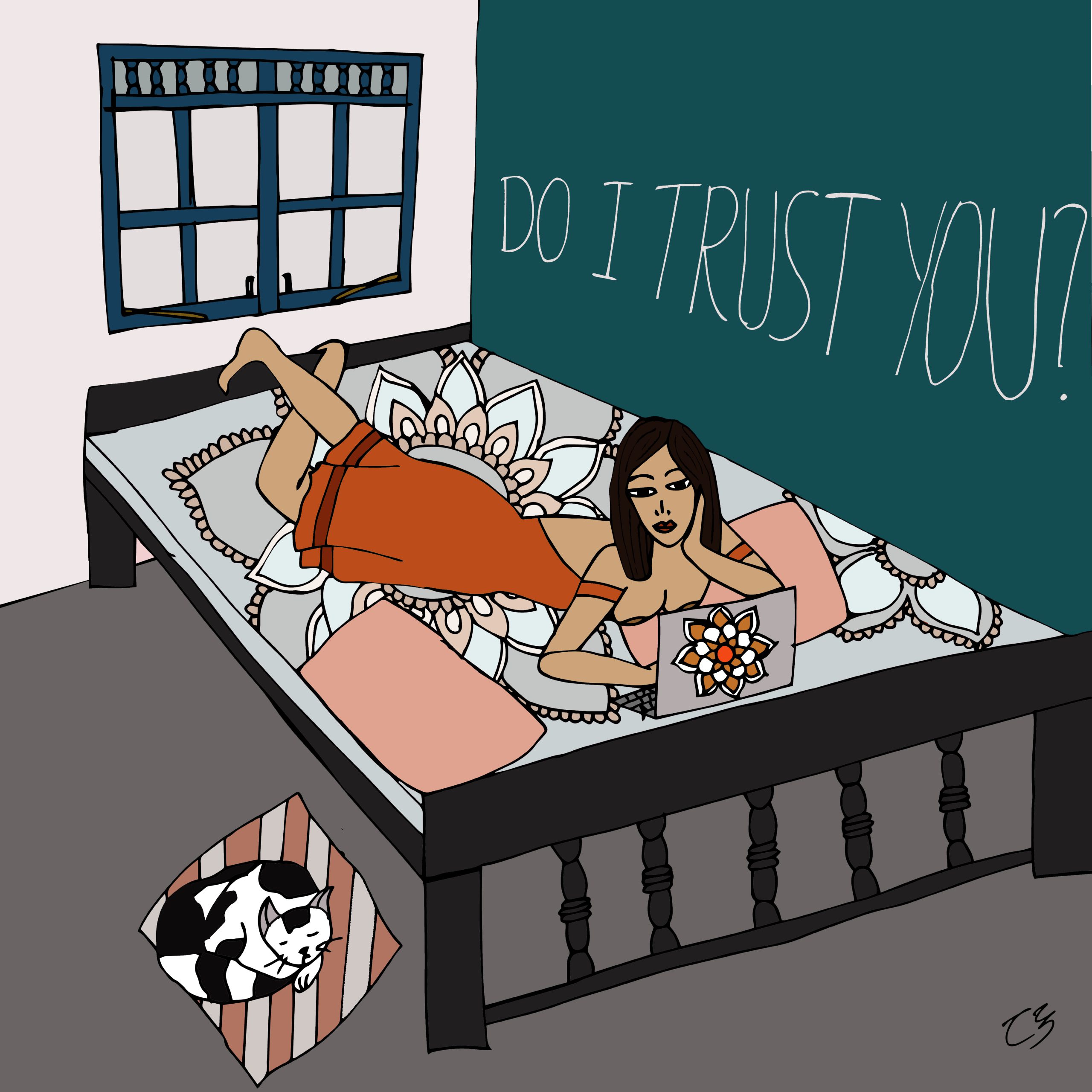
Do I trust you?
This artwork developped as part of a capmaign on cyber explotation by Athwela. Athwela is a rural’s women’s group in Sri Lanka that seeks to empower women throgh awareness and sustainable economic development. Non-consensual sharing of intimate photos is one of the most common forms of sexual and gender based violence perpetrated online. In Sri Lanka, even in the most rural part of the country, young people share intimate photos with their trusted partners which are circulated upon the end of relationships.
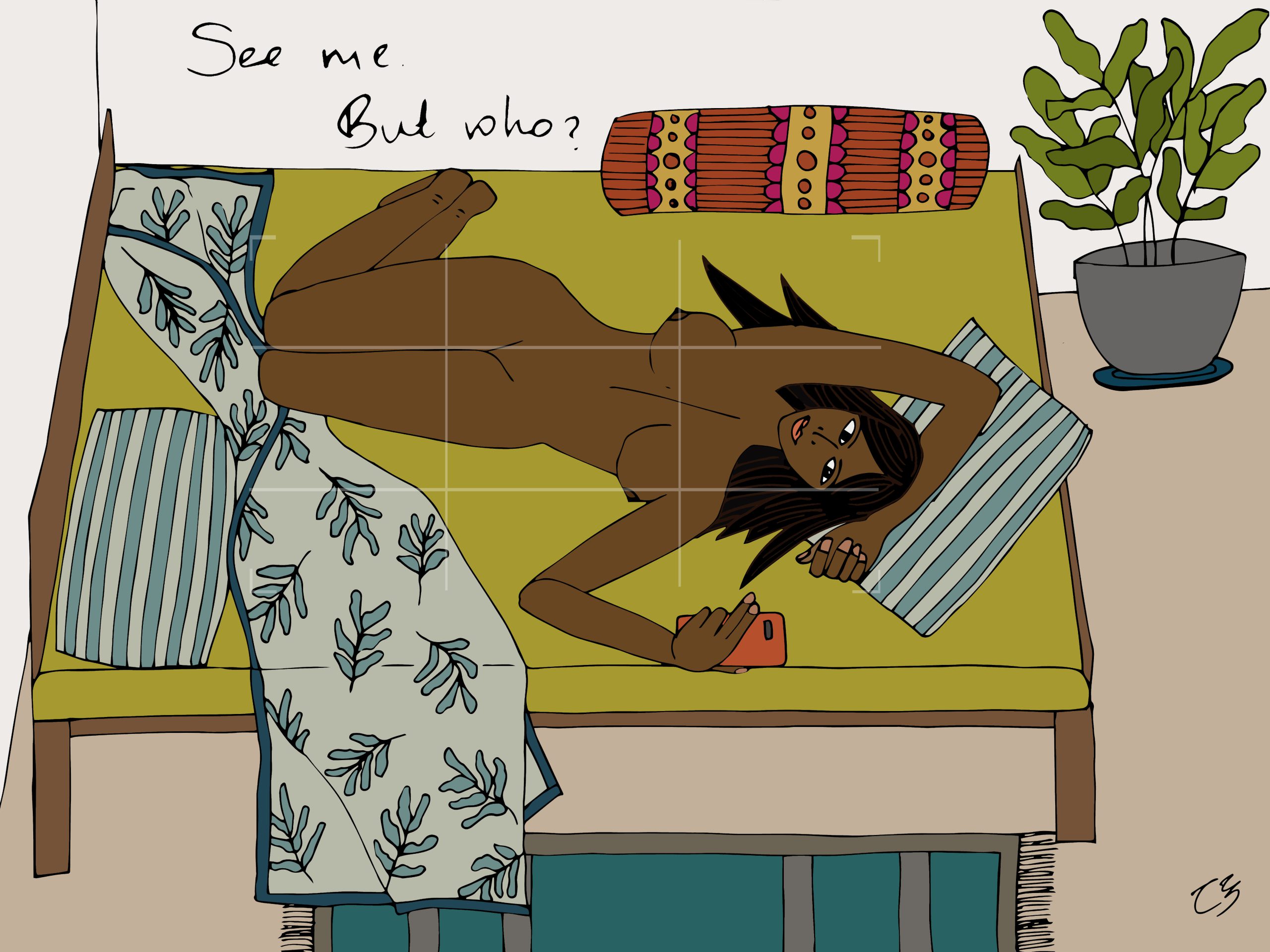
See me, but who?
This artwork developped as part of a capmaign on cyber explotation by Athwela. Athwela is a rural’s women’s group in Sri Lanka that seeks to empower women throgh awareness and sustainable economic development. Intimate photographs of oneself are ultimately a valid form of expression of one’s sexuality. Whether the sharing of intimate photos is consensual or not depends merely on its audience.
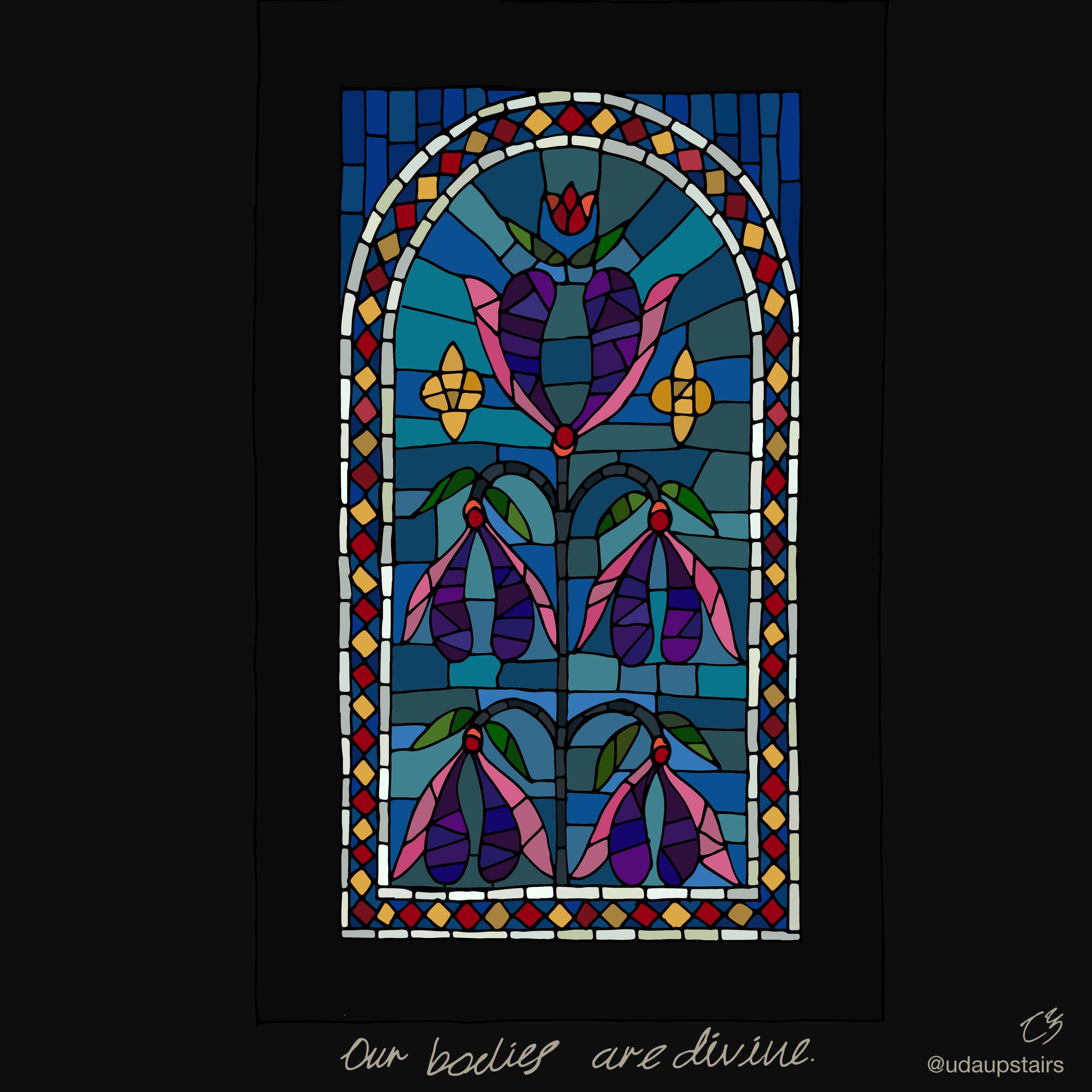
Our bodies are divine
Inverted clitorises forming stained-glass flowers.
‘Religion is often used as a ground to perpetrate female genital mutilation (FGM) which restricts women’s experience of sexuality in inhumane ways. I come from a multi cultural family and members of my family have experienced FGM. We often speak about it at dinnertime to make sure that future generation of our families do not forget how barbaric FGM is and actively fight to end the practice within our families’– Uda
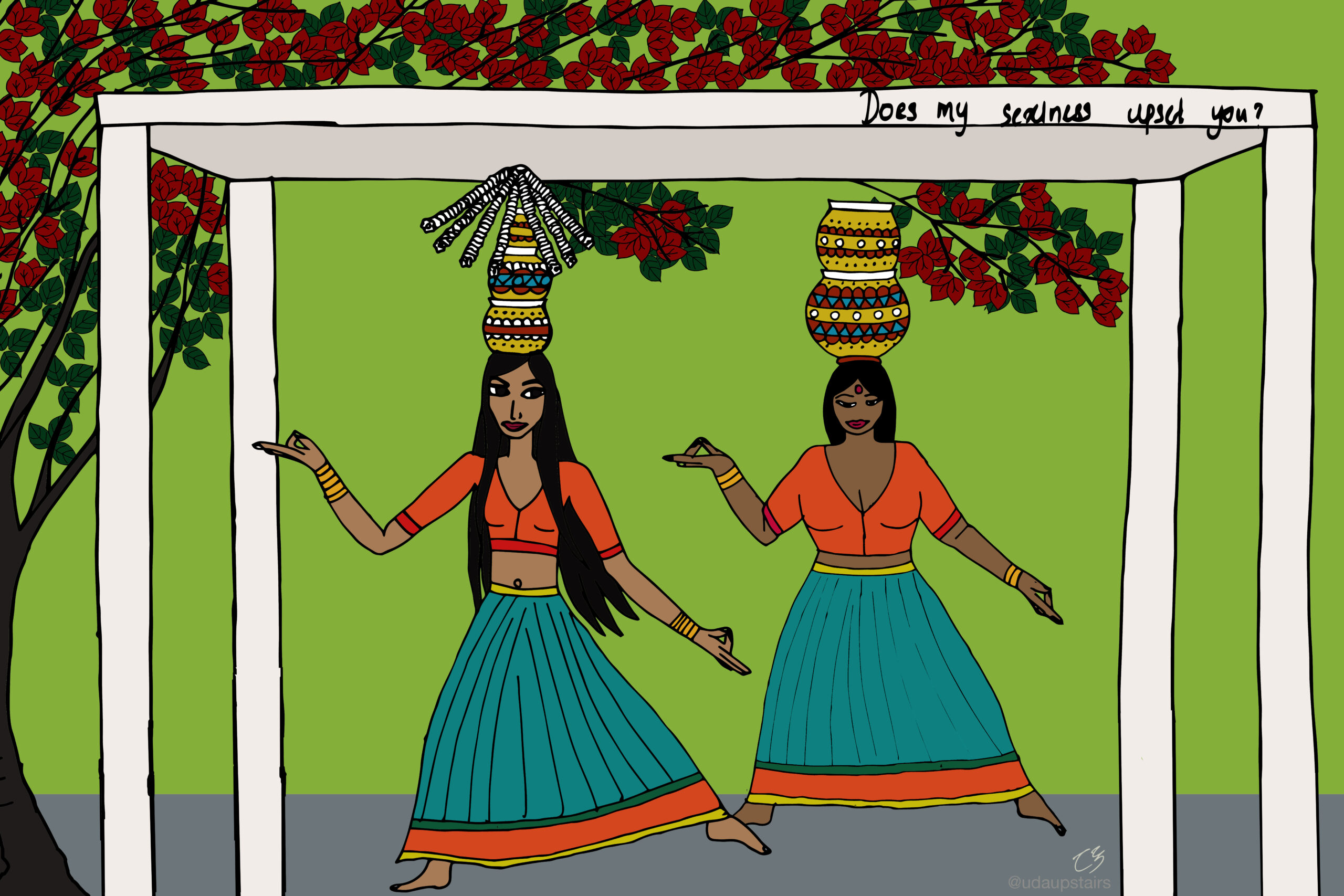
Kohomba
Kohomba Kale is a traditional dance in Sri Lanka where women dance with a pot on their heads- resembling a pot used to fetch water. Fetching water is a highly gendered chore that is predominantly done by women. Increasingly transgender women are seen dancing Kohomba Kale in local processions.
‘I first saw the dance Kohomba Kale, when I was a little girl playing in my mom’s office in Kurunegala. One of the older girls who was also waiting for her mom, danced under the red bougainvillea. She was very sexy- her dance was sensual. When we moved to Colombo I saw that trans women danced KohombaKale at temple ceremonies and processions. They were also incredibly sexy and unapologetically so. They reminded me of Maya Angelou writing– Does my sexiness upset you? Does it come as a surprise? That I dance like I’ve got diamonds. At the meeting of my thighs?’ – Uda
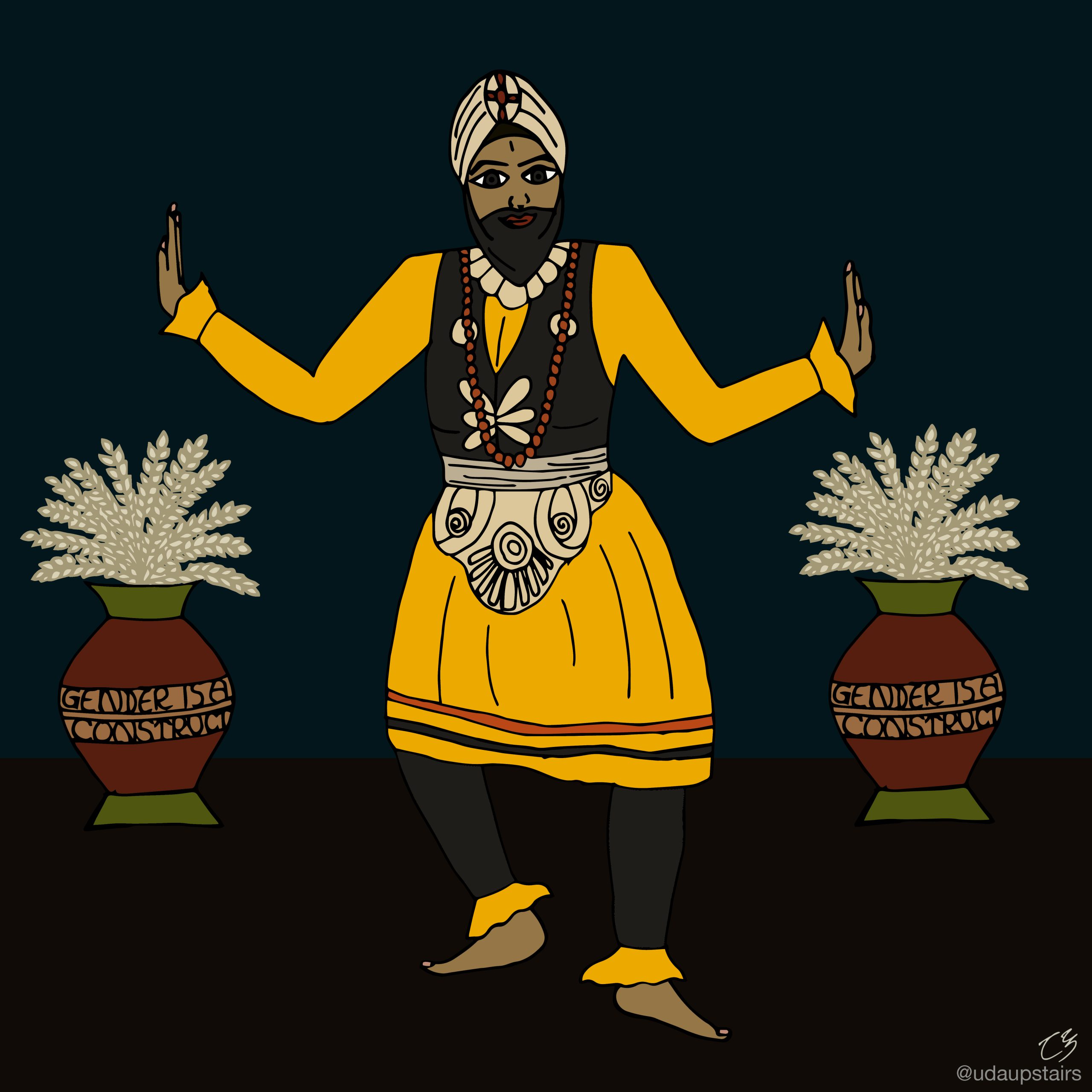
Wadiga Pattuna
Wadiga Patuna is a traditional Sri Lankan dance danced by a woman dressed as a man- a depiction of the arrival of a hermit (Bamuna) from the land of Wadiga. If you read between the lines, you’ll know that gender is fluid. And that it’s a construct.
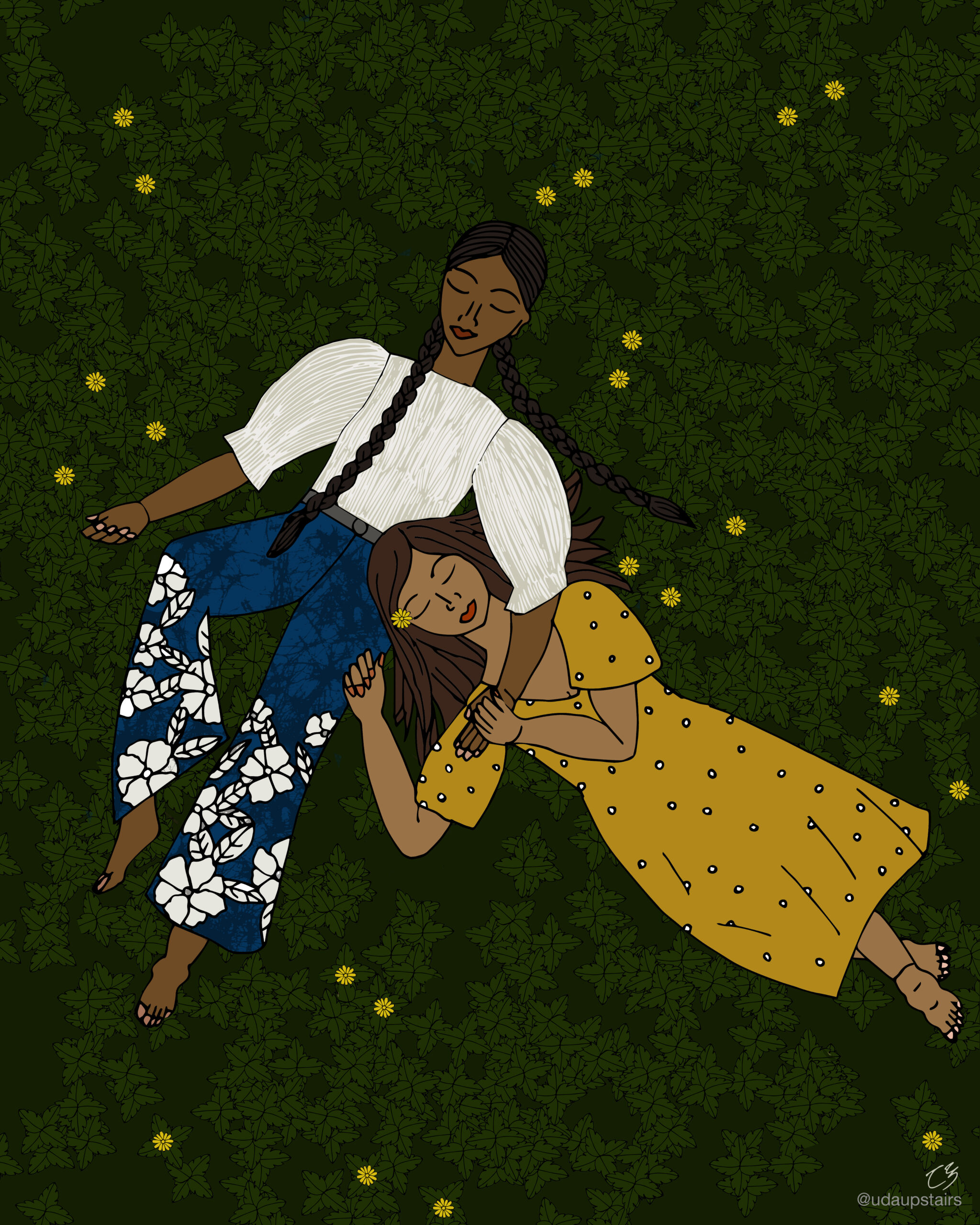
Girls
Lovers in bliss, in nature and in peace.
